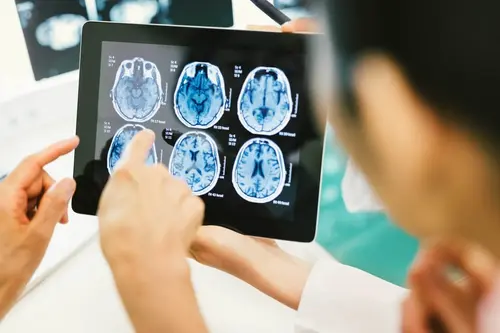Neurosurgery Services | Meet the Best Neurosurgeons in Malaysia

About Neurosurgery
Neurosurgery is a medical specialty that provides diagnosis and surgically treats patients with conditions or injuries to the brain and peripheral nerves. It is designed for treating both adults and paediatric patients.

Key Differences Between a Neurosurgeon and a Neurologist
A neurosurgeon is a specialist trained to diagnose and manage conditions affecting the nervous system. Neurosurgeons perform surgical procedures for brain and spine conditions and injuries. They also provide nonsurgical treatments. Stroke, low back pain, epilepsy, pinched nerves, sciatica, and chronic pain are some of the painful medical conditions treated by neurosurgeons.
A neurologist mainly treats neurological problems that can be treated with medications or other therapies, such as Alzheimer's disease, epilepsy, and peripheral nerve disorders.
Conditions Requiring Neurosurgery
The following are conditions that require neurosurgery:
- Brain or spine injury
- Stroke
- Intracerebral haemorrhage
- Cerebral aneurysm
- Herniated disc
- Lumbar spinal stenosis
- Scoliosis
- Spinal infections
- Adult-onset hydrocephalus
- Spina bifida
- Brain or spine tumours
- Seizure or tremors
- Brain infections such as meningitis
Diagnostic Tests and Procedures
The following are the different diagnostic procedures that may be required to diagnose neurological conditions:
- Blood tests
- Imaging tests such as X-rays, magnetic resonance imaging (MRI), computed tomography (CT) scan, positron emission tomography (PET) scan, myelogram
- Electroencephalography (EEG)
- Nerve conduction velocity (NCV)
- Electromyography (EMG)
Types of Neurosurgery Procedures
The following are the different types of neurosurgeries:
- Vascular neurosurgery: This involves the treatment of blood vessels in the brain and spine.
- Epilepsy surgery: This treatment removes areas of the brain that cause uncontrolled seizures (for seizures that are not treatable through anti-epileptic medications).
- Neuro-oncology: This involves the management of brain and spinal cord tumours.
- Skull base surgery: These surgeries focus on removing tumours at the skull's base. These are sometimes done endoscopically and are minimally invasive.
- Spinal neurosurgery: The surgery is done to treat disorders or injuries of the spine.
- Paediatric neurosurgery: These are neurological surgeries that involve specialised inputs of a paediatric neurosurgeon.
- Gamma Knife Radiosurgery: Read more about Gamma Knife Radiosurgery here.
- Computer-assisted brain surgery: Surgeons use imaging techniques like MRI, CT, PET scans, and intraoperative MRI to create a 3D model of the patient's brain to assist with the surgery.
Neurosurgeons and Neurologists at Gleneagles Hospitals
Speak to your doctor to learn more about neurosurgery. The caring and multidisciplinary team of healthcare professionals are available for consultation and to provide the best care. Make a move towards improving your health and quality of life.
Get in touch with us to book an appointment today. We assure you the best possible care tailored to your specific needs.
Neurosurgery Specialists at Gleneagles Hospitals
Explore the neurosurgery specialists at Gleneagles Hospitals to find the best doctor for your neurological care needs.



